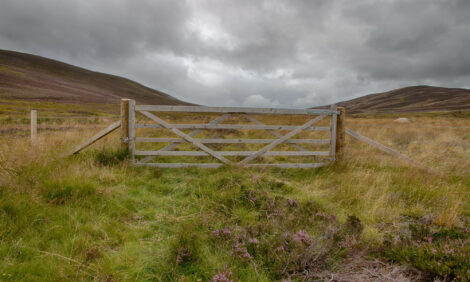



Hog futures fall on a seasonal lull - CME
Cattle fall as consumers opt for cheaper meatsChicago Mercantile Exchange (CME) live cattle and feeder cattle futures fell on Thursday on renewed worries over inflation-hit consumers' ability to purchase pricy cuts of meat, Reuters reported, citing traders.
Hog futures also fell on a seasonal lull in prices and a strong supply of heavy hogs. Beef and pork demand has eased as the U.S. nears the end of the outdoor grilling season.
Tyson Foods' CFO Curt Calaway noted during an investor webcast that consumers are gravitating toward chicken and ground beef instead of higher priced steaks.
Calaway said US cow producers have stopped slashing their herds after tight supplies pushed up beef prices. Producers have not started rebuilding the herd in a meaningful way, though, he said.
"It's a question of demand going forward because the consumer is hurting," independent livestock trader Dan Norcini said.
Investors assessed a mixed set of reports, including a decline in weekly jobless claims and an ADP survey which showed employers hired the fewest number of workers in 3-1/2 years in August.
Most-active CME October live cattle closed down 1.975 cents at 177.25 cents per pound. Most-active CME October feeder cattle finished down 2.875 cents at 234.575 cents per pound.
Select boxed beef prices fell on Thursday afternoon, with prices down $2.61 at $296.78 per hundredweight (cwt), US Department of Agriculture (USDA) data showed. Choice boxed beef cutouts fell $0.09 at $311.51 per cwt.
Pork carcass cutout prices fell by $0.12 at $95.17 per cwt, according to USDA data. Ham and pork belly values also fell.
Most-active CME October lean hog futures settled down 0.875 cent at 80.7 cents per pound.
In other news, a recent anthrax outbreak among Wyoming cattle prompted a spurt of "fear-based selling," Rich Nelson, chief strategist at Allendale, said.
The Wyoming Livestock Board reported on Tuesday that anthrax, a disease caused by bacteria that lays dormant in soil, affected multiple cattle herds in the state. Livestock with anthrax can suffer sudden death, weakness and other symptoms, the board said.







